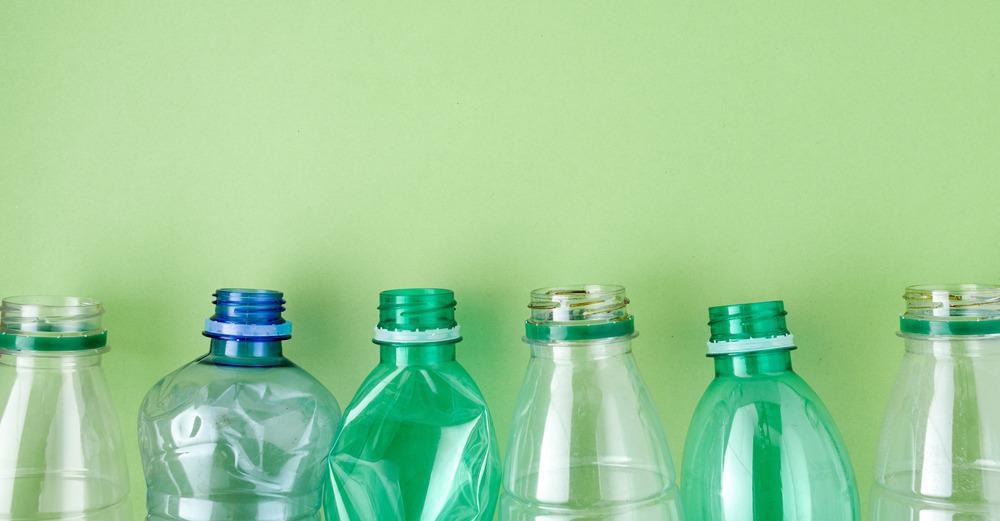
Image Credit: Alliance Images/Shutterstock.com
The climate crisis has forced mankind to reassess its collective priorities and rethink everything from power generation and storage, to farming methods and transportation. The relationship with plastic has also been examined; the ubiquitous and once revolutionary material is used for everything from food and drinks containers, cosmetics bottles, and toys, to car parts and consumer electronics.
Plastic is useful, but the raw materials for many of them are fossil fuels, a finite resource. Once it has served its useful purpose, the plastic is often simply discarded. This plastic waste can persist in the environment for thousands of years, breaking down into smaller components over time, which find their way into the water cycle and the food chain.
Plastic waste is increasingly being recycled into plastic flakes or pellets that can be remolded into new products. Global brands are increasingly using these recycled plastics over virgin plastics in their products and packaging. Better Plastic™ is one such product, created by Indian company Banyan, using proprietary plastic recycling technology.
Banyan’s Better Plastic
India has the second-largest population in the world but has one of the lowest rates of plastic consumption in the world – just 11 kg per person annually, compared to around 109 kg per person in America. Nonetheless, plastic waste in the country is a growing concern.
To tackle the problem, Banyan, one of India’s first vertically integrated plastic recycling companies, is using its proprietary plastic cleaning technology to convert discarded plastic waste into Better Plastic™, a high-quality recycled granule that is equivalent in quality and performance to virgin plastic. This is a first in India’s highly informal, low-tech industry, state the company.
Banyan’s cleaning technology uses environmentally friendly detergents and solvents to remove ink, coatings, and other contaminants from post-consumer plastics such as shampoo and cosmetic bottles, and post-industrial plastics such as car parts or paint cans.
The scientifically rigorous process of segregation, washing, and extrusion helps to identify resins with a high degree of accuracy while also preventing cross-contamination and eliminating product and packaging contamination.
The result is consistently high-quality, near virgin-quality recycled granules. Banyan says the addition of performance polymers allows it to meet the stringent thermal and mechanical properties required of high-performance automotive and consumer products.
The recycled resins can be used in consumer packaging, car components, furniture, and consumer electronics, with Banyan offering standard as well as custom-graded recycled compounds.
Banyan Nation Raises $800K, Accelerates India's Waste Recycling
Video Credit: IIX/YouTube.com
Links in the Chain
Many of us try to reuse or recycle our plastics but plastic waste issues remain a global problem. To make improvements, the whole plastics value chain must be considered so that waste collection systems can be improved, and more plastics redesigned or replaced, recovered, and recycled.
Banyan has taken an important first step in tackling plastic waste in India; their data intelligence platform is one of the first to use mobile, cloud, and the Internet of Things (IoT) to link thousands of informal recyclers into their supply chain to recover post-consumer and post-industrial plastic waste.
The platform also enables the companies to help cities manage their waste effectively by helping them understand and improve waste flow through their cities to make it more economical, efficient, and effective.
Banyan has collaborated with global brands to develop a circular economy leadership. It has pioneered closed-loop recycling initiatives with Tata Motors, India’s leading car company, to make new bumpers from old ones, and with a global cosmetic company L’Oréal to make new bottles from discarded ones. Banyan hopes its recycling initiatives can be extended to industries across the country.
References and Further Reading
Banyan Nation: https://banyannation.com. Accessed 12 May 2021.
World Business Council for Sustainable Development, Towards a better way of managing plastic waste in India, WBCSD: https://www.wbcsd.org/Overview/About-us/Our-offices/India/News/Towards-a-better-way-of-managing-plastic-waste-in-India. Accessed 12 May 2021.
Disclaimer: The views expressed here are those of the author expressed in their private capacity and do not necessarily represent the views of AZoM.com Limited T/A AZoNetwork the owner and operator of this website. This disclaimer forms part of the Terms and conditions of use of this website.